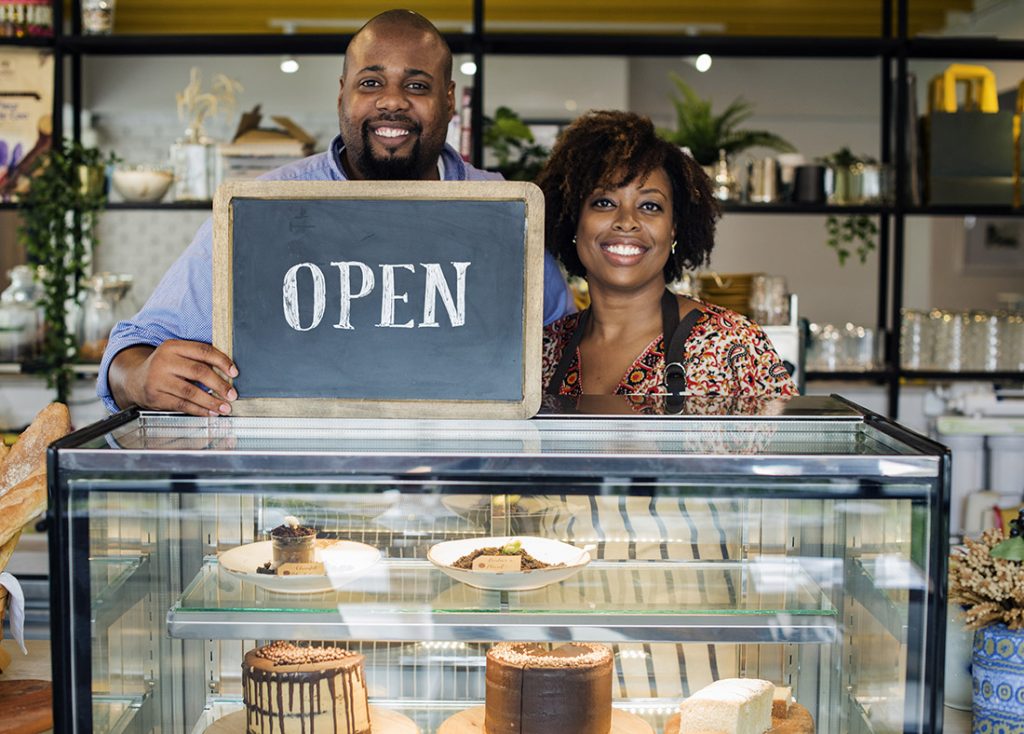Adapt & Innovate: Digital Markets during COVID-19
January 21, 2021
Increasingly, merchants have had to adapt to a digital marketplace since a swell of consumers adhered to stay-at-home orders.
Travel, retail, and hospitality sectors had to contend with the adoption of contactless, online and mobile payments, accelerating the need to modernize. In this series, we take a look at the Discover Global Network’s analysis of new trends and necessary changes for merchants who want to stay in the game.

Transitioning to the Digital Economy
Shopping habits worldwide have changed. eCommerce transactions surged at the height of the pandemic, and despite relaxed quarantine rules, most consumers have continued to fulfill shopping needs online. Merchants must be wary of payment infrastructure thus far in place: e-wallets and contactless cards replaced cash in Germany, Italy, and Brazil, where cash has long reigned supreme.
To maintain consumer loyalty, business both large and small have streamlined payment methods and enabled cross-border payments for greater accessibility. And given the sheer volume and transactions, retailers have also had to invest in more responsive websites that could offer additional amenities to the consumer, as well, including Buy Online, Pick Up in Store/Curb delivery options.
Curb delivery presented its own measure of logistical hurdles (staff training and fulfillment coordination) for retailers to also plan and execute.
Nothing can replace in-store costumer experiences, however, and many consumers still elect to do their shopping in-person, heightening the need for touchless payment terminals.

Mom & pop establishments and small-medium brick & mortars are heavily tested in these segments of payment processing due to their limited resources and the ongoing cost of maintaining contactless terminals (merchant account, transaction fees, payouts, etc.). According to The Paypers, several PSP’s extended payout times or temporarily exempted merchants from payments to help those dealing with liquidity issues.
Growing Trends
The Shared Economy
Restaurants have had to adapt tremendously to the sea-change brought about by the pandemic. Many have partnered with delivery platforms to ensure continued consumer access to their goods. Small businesses also saw increased solidarity with delivery companies as a means of staying afloat, which often waived fees for some partner restaurants based on specific criteria.

Buy Now, Pay Later
Buy Now, Pay Later solution providers offered installment-based purchasing options for consumers who had to make huge adjustments to their spending habits. Retailers have experimented with both pay later services and installment payments.
Airlines’ Moment of Reckoning
To mitigate further damage to their profits, airlines have pivoted focus to cultivating customer-friendly experiences. Waiving change and cancellation fees have been adopted by most top international carrier and major US-based airlines.
Chargeback rates increased dramatically in wake of the pandemic (with one travel company seeing an increase of 300% in just one week) and many online travel agencies (OTA’s) have had to bear the brunt of these costly and time-consuming matters.
Fraud Surges

The increased online presence for consumers has been a breeding ground for fraudsters, whose attacked have doubled in 2020. Criminal groups now have an easier time of detecting patterns in consumer behaviors and greater card not present (CNP) transactions means more CNP fraud.
Stolen data remains a lucrative enterprise and with large numbers of new and inexperienced costumers making their way to the online space, criminals have ample opportunity to attack vulnerable accounts.
The best strategy to take from 2020 into 2021 is developing best practices in the new digital landscape for enhanced security and ease-of-use.
Checkout Convenience
Consumers want easy and fast checkout experiences like Click to Pay. Fewer steps in the process means efficient digital checkout solutions across multiple brands. This means that merchants must invest in reinforced payment structures while exploring more cost-effective alternative payment methods (such as those offered by Zelle and other bank-linked payment avenues).
For instance, the Discover® Global Network recently launched Discover® Click to Pay for use by Discover® Cardholders. Discover Click to Pay provides an easy to use, consistent, password-free, and faster checkout experience across all participating merchants.
Security Authentication
“The Discover Global Network solution, Discover® ProtectBuy®, can enable retailers to offer their customers an authentication method that adapts to each user, making the transaction as seamless as possible.” EMV 3-D Secure Protocol and Core Functions Specification deploys authentication processes with accuracy and speed.

The increased security means e-commerce merchants should prepare for greater sophistication from criminals. Being prepared for the digital transformation is the best measure any business can take in light of the “new normal.”
Want to learn more? Check out The Paypers full write-up of the sea-wave of change that’s come across the digital marketplace.


